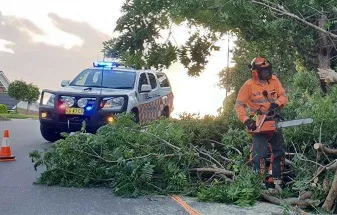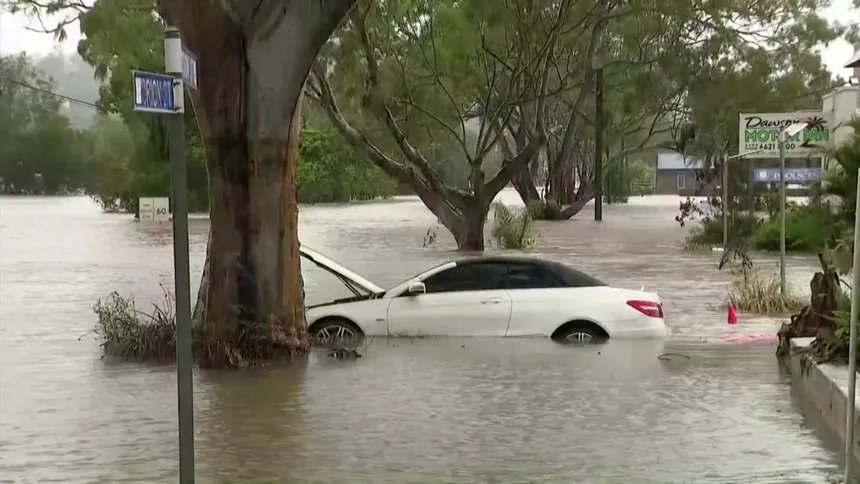The usually bustling summer holidays have brought an eerie stillness to the normally vibrant town of Deniliquin in New South Wales. The flooding of the Edward River in November forced the McLean Beach holiday park, which sits on the state’s largest inland beach, to shut its doors to casual visitors. The park’s co-owners, Jacquie Mealing and her team, spent weeks cancelling holiday bookings, incurring a revenue loss of around $230,000.
The impact of the flooding is stark. Piles of rubbish lie between the water-damaged caravans and cabins, torn mattress covers mingle with discarded furniture, and the once-pristine showers in the amenity blocks are now nothing more than a memory. The high-water mark from the flood is visible several metres up on trees and taller buildings, a stark reminder of the devastation wrought by the rising waters.
The loss is not limited to the caravan park alone. The town’s economy has also taken a hit, as the thousands of visitors who would normally flock to the town to enjoy the summer holidays are nowhere to be seen. Mealing notes that the town’s pubs, cafes, and shops, which rely heavily on tourist dollars, are now eerily quiet.
“It’s a very big cost,” Mealing laments, speaking of the revenue loss and the broader business impacts. “It’s not something that we’re going to come back from quickly.”
The story is repeated elsewhere along the Murray River, where many riverside caravan parks have been forced to close their doors due to the flooding. These parks rely heavily on the sale of annual sites, year-long leases of powered caravan sites or cabins. However, months of closures have made it impossible for them to operate, leading to a sense of devastation among park owners and managers.

“It’s the death of annual parks in rural Australia,” Mealing says, her voice tinged with sadness. “We have parks in Nagambie with 200 to 300 annual sites, and they’re closing all of their annual sites.”
As of Thursday, 86 national parks were closed across New South Wales, while 29 parks in Victoria remain shut, with 48 having partial closures in place. The closures are a blow to summer tourism, which sustains regional communities in rural areas.
Fiona Jeffress, who manages the McLean Beach holiday park, notes that the town is usually alive with activity during the summer holidays, but this year, even the pub on New Year’s Eve was deserted. “The whole of Deni is dead,” she says, her voice heavy with despair.
The loss of tourism revenue has a ripple effect on the local economy, and Mealing fears that the impact will be felt for some time to come. “Because they’re right here in town, they’re always spending money in town at the pubs and the cafes, and the shops,” she says. “That business has gone. So it’s impacted all of the tourism, and that has a very, very big impact on the local economy.”

